Ars Electronica Garden
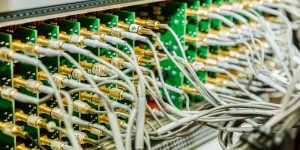
Challenging the limits of AI for the next generation of co-creative tools
IRCAM Institute for Research and Coordination in Acoustics/Music (FR)
The IRCAM garden will display its unique interdisciplinary approach where artistic, scientific and technological visions come together. It will feature six events: “Can we do the same with less - AI in 64 Kb” – a hands-on workshop for the AIxMusic Hackathon by Philippe Esling (FR); the panel “Fronteers of Music and Artificial Intelligence” organized by Elaine Chew (FR), and discussions with Dorien Herremans (BE) and Philippe Esling (FR); the panel “Musical Generatives” – a video-recorded discussion panel In the framework of the "Forum Vertigo" 2020; ”Little Etudes for Piano” – a video-recorded performance by Elaine Chew (FR) of a series of short piano pieces based on cardiac electrical anomalies; “AI Creative Agents: The Man I Love” – avideo featuring the Improtek project interpreted by Hervé Sellin (FR) and Remi Fox (FR); and the performance of a piece by artist Georges Bloch featuring the DYCI2Lib technology at Manifeste 2020.
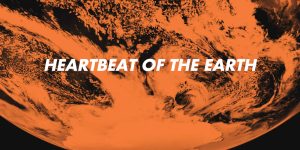
Heartbeat of the Earth
Google Arts & Culture Lab (FR)
On June 5, World Environment Day, Google Arts & Culture Residency Program, together with UNFCCC, launched a series of online artworks inspired by climate data. Collaborating with artists from around the world, this series of online artworks is an artistic response to the topics highlighted in the UN’s IPCC reports, including receding glaciers, food’s CO2 emissions and the acidification of our oceans.
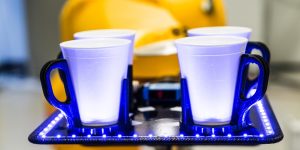
Robots in Action - fast and sensitive!
Institute of Robotics, Johannes Kepler University Linz (AT)
Roboter können stark und empfindlich zugleich sein! Sie können sich extrem schnell bewegen, aber auch zerbrechliche Objekte wie Champagnergläser handhaben. Stellen Sie sich vor, Sie möchten ein Tablett mit mehreren gefüllten Gläsern tragen, ohne die Flüssigkeit zu verschütten – und noch mutiger, könnten Sie vielleicht versuchen, das Tablett über dem Kopf zu schwenken. Die meisten von uns werden bei diesem artistischen Versuch scheitern und die Gläser zerbrechen. Aber unsere Roboter sind intelligent und wendig genug, um genau solche Aufgaben zu erfüllen. Das Institut für Robotik der JKU wird sein Labor öffnen und zeigen, was moderne Industrierobotik bedeutet und dass sie Spaß machen kann.
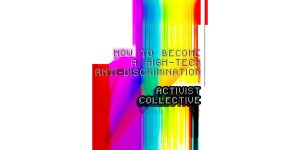
Nushin Isabelle Yazdani und Internet Teapot (Karla Zavala und Adriaan Odendaal): [d/r]econstructing AI - dreams of visionary fiction and zine-making
How to Become a High-Tech-Anti-Discrimination Activist Collective
In diesem Workshop untersuchen wir die Strukturen hinter algorithmischen Entscheidungsfindungssystemen. Es wird diskutiert, warum ihr Design normativ ist und wie KI-Systeme die strukturelle Diskriminierung verstärken.
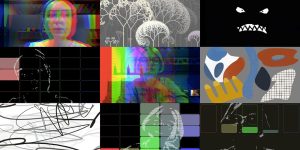
Point Nemo Garden
WRO Art Center (PL)
The event was organized at the Szczytnicki Park close to the plane tree, an example of Wrocław’s long-time signature species.

LAB ON STAGE (Adriana Torres Topaga, Martyna Lorenc and Andrea Maria Handler): Phantom Data in our bodies and imagination
How to Become a High-Tech-Anti-Discrimination Activist Collective
Dieser Workshop verfolgt einen performativ-künstlerischen Ansatz. Unser Ausgangspunkt ist die Verkörperung von Vorstellungs- und Wahrnehmungsprozessen.
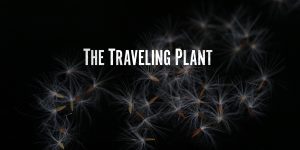
The Traveling Plant Garden
A. Bureaud (FR), T. Kourochkina (ES/RU), M. de Menezes (PT), Claudia Schnugg (AT), R. Šebjanič (SI)
The Traveling Plant project will trace the voyage of a plant – real, artificial or fictive – around the world, as she tells her story and the stories of other plants and creatures (human and non-humans) she encounters. It is the umbrella title for a series of artworks and events held around the world at different places and times, under the direction of local participating organizations and international curators.

Astrid Mager und Hong Phuc Dang: How to create your own AI device with SUSI.AI - An Open Source Platform for Conversational Web
How to Become a High-Tech Anti-Discrimination Activist Collective
Der Workshop stellt SUSI-Komponenten wie den Technologiestack von SUSI, seinen Wiki-ähnlichen Skill-Editor und Hardware-Prototypen vor; die Teilnehmer*Innen arbeiten zusammen, um einen einfachen Bot zu erstellen, und um neue Fähigkeiten zu entwickeln und testen. Eine Reflexion über Datenverzerrung und algorithmische Diskriminierung lädt dazu ein, gemeinsam über die Schaffung diskriminierungsfreier digitaler Technologien nachzudenken.

Doris Allhutter: “When I encountered discriminating IT-systems and did not want to take it anymore” - deconstructing affective entanglements in society-technology relations
How to Become a High-Tech Anti-Discrimination Activist Collective
Dieser Workshop wendet die dekonstruktive Methode des Mind Scripting an, um den Einfluss zu verstehen, den selbst Technologien, die wir ablehnen, auf uns haben können. Anhand unserer eigenen Erinnerungen als experimentelle Ressource werden wir untersuchen, wie sich Diskriminierung und Privilegien in unseren Praktiken materialisieren. Dies zielt darauf ab, kollektive Handlungsfähigkeit und Aktivismus zu entwickeln.

Safiya Umoja Noble: Algorithms of Oppression - How Search Engines Reinforce Racism
How to Become a High-Tech Anti-Discrimination Activist Collective
Die Informationslandschaft verändert sich rasch, da neue Anforderungen die Investitionen in digitale Technologien erhöhen. Kritische Wissenschaftler*Innen zeigen jedoch immer wieder auf, wie viele Technologien von Werten geprägt und durchdrungen sind, die nicht unparteiisch und körperlos sind oder denen es an Positionierungsfähigkeit fehlt. Technologien haben rassen-, geschlechts- und klassenpolitische Bedeutung. In diesem Vortrag wird Dr. Safiya Noble über ihr kürzlich erschienenes Buch „Algorithms of Oppression“ und den Einfluss der Technologie auf die Öffentlichkeit sprechen.

Lisa Nakamura: Estranging Digital Racial Terrorism After COVID
How to Become a High-Tech Anti-Discrimination Activist Collective
In diesem Vortrag wird argumentiert, dass COVID-19 eine beschleunigte Migration zu digitalen Netzwerken erzwang. Dieses neue Publikum wurde sowohl mit rassistischen und traumatisierenden digitalen Inhalten auf den Plattformen konfrontiert, als auch mit neuen Möglichkeiten für Kritik und Widerstand.

How to Become a High-Tech Anti-Discrimination Activist Collective
IFG-LIT (AT)
Neue Technologien sind in alle Aspekte unseres Lebens eingedrungen und versprechen eine breite Palette an Verbesserungen und Erleichterungen. Allerdings funktionieren Algorithmen, auf welchen diese Technologien basieren, im Gegensatz zur allgemeinen Wahrnehmung weder in neutraler Weise, noch behandeln sie alle Leute gleich.
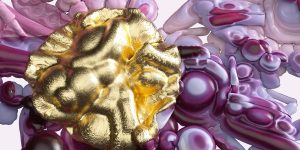
HSE Garden Pavilion
HSE ART AND DESIGN SCHOOL (RU)
HSE Garden Pavilion is a platform that presents a 3D game, sound performance and an animated short film program. It’s dedicated to the issues of modern environments, both online and offline. HSE Garden Pavilion was created by students and curators of the HSE Art and Design School, which is the part of HSE University, one of the leading Russian universities.
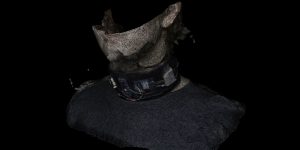
Datasets vs Mindsets
Helena Nikonole (RU), Olga Vad (RU)
or many Post-Soviet countries digitalisation is proclaimed one of the main important national priorities, however, the local context transforms the understanding and implementation of digital tools in its own way. The project aims to present several generations of new media artists from post-Soviet countries. It is dedicated to the artistic exploration of the boundaries between digital and physical spaces and the whole spectrum of phenomena and consequences of the implementations of algorithmic regulation and control tools in the local context.
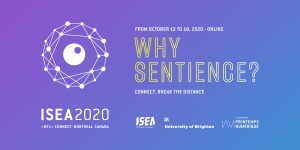
Why Sentience?
ISEA2020 (CA)
ISEA2020 examines the resurgence of sentience — feeling-sensing-making sense — in art and science. We ask: why sentience? Why and how does sentience matter? Why have artists and scholars become interested in sensing and feeling beyond, with, and around our strictly human bodies and selves? Why has this notion been forefronted by an array of disciplines in the 21st century? Our garden at Ars Electronica teases at how the transdisciplinary investigations from participating artists and scientists at ISEA2020 respond to these questions and pose new ones.
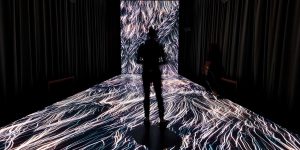
Emergence & Convergence
PHI (CA)
The PHI GARDEN gives a virtual overview of the PHI Centre’s current Emergence & Convergence exhibition in Montreal, an exhibition that investigates our humanity in relationship with our planet and all living beings. It explores a future in which the fusion of nature and technology could become a new ecology.
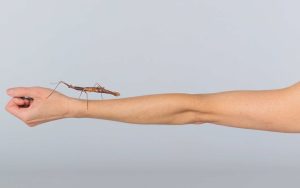
Igniting Creativity and Discovery where Science and Art Collide - Melbourne
Science Gallery Network (Int. - Atlanta/Dublin/Venice/Melbourne/London/Bengaluru/Detroit)
The Science Gallery Garden at the Ars Electronica Festival will explore trust, technology, global challenges, arts innovation and new forms of digital storytelling. A showcase from the world’s only university network dedicated to public engagement with science and art, it will feature interactive workshops, experimental audio and visual experiences, livestreamed events and a specially-curated digital archive.
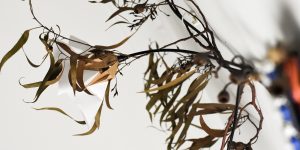
Beside the Nibelungen bridge & Oribokit: Gardening for Robots
Studio Matthew Gardiner (AU)
Wherever you are today and whenever you may have sat or stood somewhere, late late late at night, in Linz, this work is for you, this work invites you use our AR gadgets to place a Wurststand in your town, or place a Leberkässemmel on your plate at home. Share a post and write a short memory of a day (or night) at an Ars Electronica Festival.

Magic Darts or, when every throw is a perfect hit
Andreas Stelzer (AT), Rudolf Scheidl (AT)
Darts is a popular game, but difficult to master. In this version of darts, players always hit the bullseye. What looks like witchcraft is revealed as a mechatronic system, with a novel microwave sensor network and ultrafast hydraulic actors interacting. Such technologies will affect our future daily life, e.g. in self driving cars, with microwaves allowin us to see in the dark, with fog or dust; or in exoskeletons, where hydraulic actuation enables ultimate compactness.
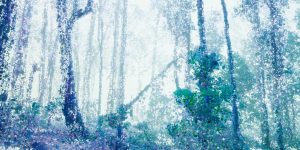
Past and Future Utopia
Melbourne School of Design (MSD), The University of Melbourne (AU)
Set on the indigenous land of the Dja Dja Wurrung, in rural Victoria, Australia, we present two projects that explore how we can reimagine and rethink a rural site, its past and its future. These intertwined projects create a relationship to Country and dive into the complexity of histories and stories, told from a pre-settlement, a colonial, and a utopian post-colonial perspective.


